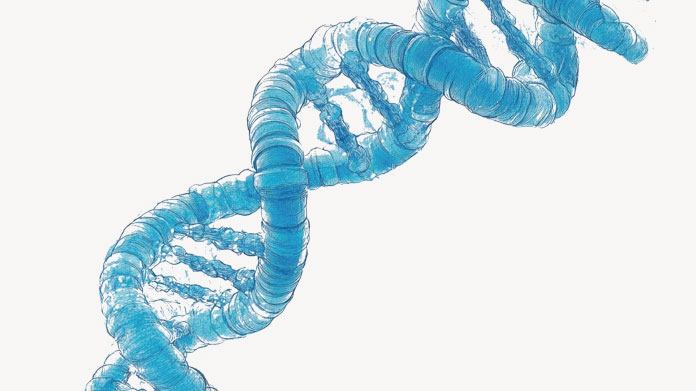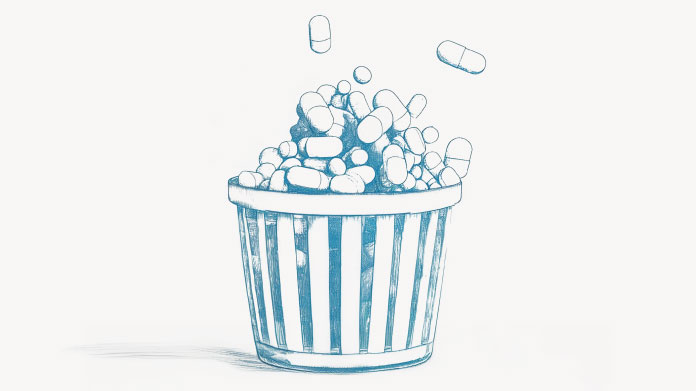Indispensable: the 12 fruits and vegetables with the highest polyphenol content
The polyphenol content of fruits and vegetables is one of the main reasons these foods are so good for our health. But which contain the most? And can you guess which one takes the no. 1 spot?

What exactly are polyphenols?
Polyphenols are organic molecules that exist in the plant kingdom. As their name suggests, these compounds are distinct in having several phenol groups.
Polyphenols thus include simple phenols, coumarins, flavonoids, anthocyanins, lignans...
Several studies have shown that these antioxidant phytonutrients are responsible for many of the health benefits offered by fruits and vegetables.
One French research team has measured the polyphenol concentration of a wide range of common foods (1). Let’s take a look, in ascending order, at the fruits and vegetables with the highest polyphenol content.
Number 12: broccoli
Broccoli, a vegetable of the Brassicaceae cabbage family, contains fibre, carbohydrates, sulphur, potassium, vitamin C...
It also boasts a significant amount of polyphenols, with 98.9mg of GAE/100g (total polyphenols). GAE stands for gallic acid equivalents, gallic acid being a phenolic acid able to exert antioxidant activity.
Broccoli is particularly notable for its high content of the polyphenol kaempferol.
Number 11: dates
Dates are fleshy fruits from desert regions, which are rich in potassium, mineral salts and sugars.
Higher in total polyphenols than broccoli, with 99.3mg of GAE/100 g, dates predominantly contain condensed tannins.
Number 10: shallots
Shallots, the delicious, onion-like vegetables, contain potassium, as well as vitamins B6, B9 and C.
In terms of polyphenols, shallots have 104.1mg of GAE/100g. They also contain flavonoids, particularly the famous quercetin. Try using shallots to add flavour to your salads and sauces, or as an accompaniment to meat… To gain even more from quercetin’s benefits, you could also take a quercetin-enriched supplement.
Number 9: apples
In next place comes the apple. This key fruit contains vitamin C, B vitamins and pectin.
Its polyphenol concentration is 179.1mg of GAE/100g. Apple polyphenols are thought to be particularly promising, and are the subject of much anti-ageing scientific research (2-4) focusing on the role of phloridzin (or phlorizin), an apple glucoside. This research has resulted in the development of apple polyphenol supplements, with a high content of these compounds.
Number 8: apricots
The apricot, a sweet, fleshy fruit, is high in fibre and vitamins A and C.
It also contains a good amount of polyphenols, with 179.8mg of GAE/100g: chlorogenic acid, caffeic acid, catechol, anthocyanosides...
Number 7: grapes
A vine fruit, the grape is consumed as a fresh fruit, grape juice, wine… It contains sugar, vitamins A, B and C, as well as various trace-elements.
Research has identified significant levels of polyphenols in grapes, with no less than 195.5mg of GAE/100g. They include, in particular, the highly beneficial oligomeric proanthocyanidins (OPC), flavonoids which are available at high levels in certain grapeseed-rich formulations.
Number 6: lychees
Are you a fan of the lychee, the small, tropical fruit from China?
If so, you’ll be benefiting from a good intake of vitamin C, vitamin B9, carbohydrates, as well as polyphenols, with 222.3mg of GAE/100g, including a significant amount of flavonoids.
Number 5: Brussels sprouts
A cruciferous vegetable from the Brassicaceae family (like broccoli), the Brussels sprout is a cultivar of the same species as cabbage, rich in vitamins C and E, manganese, copper...
Brussels sprouts also contain a large number of polyphenols (mainly lignans), with 257.1mg of GAE/100 g.
Number 4: strawberries
The strawberry is part of the Rosaceae family. This delicious red fruit contains nutrients such as vitamin C, potassium and manganese.
Strawberries are also super-rich in polyphenols (263.8mg of GAE/100 g), in particular, fisetin, an excellent flavonoid with health benefits that are currently being studied extensively (6-8). It’s worth noting, however, that to obtain 160mg of fisetin, you would have to eat 1kg of strawberries. Another way of boosting your intake is to take a ‘senolytic’ supplement such as Fisetin, which contains 250mg of fisetin... per capsule.
Number 3: parsley
Who would have thought that parsley, the subtle but very popular herb, would rank third in the polyphenol stakes? This aromatic plant not only contains apiol, myristicin and vitamin A...
... but also polyphenols, including apiin, the aglycone of which is called apigenin. In all, it contains 280.2mg of GAE/100g.
Number 2: artichoke hearts
The artichoke heart is the highest-placed vegetable on this list. An edible species of thistle from the Asteraceae family, artichokes contain fibre and vitamins C and B.
Artichoke hearts, in particular, also contain an extraordinary amount of polyphenols, with a total of 321.3mg of GAE/100 g. They include chlorogenic acid (5-caffeoylquinic acid (5-CQA), 1,5-Dicaffeoylquinic acid... as well as cynarin), malic, succinic, lactic, fumaric and citric acids, flavones (apigenin, luteolin...) and anthocyanins (cyanidin, peonidin, delphinidin...)
Cynarin is a particularly beneficial artichoke compound, though it is only present at 1.5% of the level of chlorogenic acid found in artichokes. To increase your cynarin intake, you could take a supplement containing artichoke extract standardised to 5% cynarin.
Number 1: persimmon
Top of the group is persimmon (also known as Japanese persimmon or Sharon fruit), though it remains relatively little-known in the West. The national fruit of Japan, this fleshy round fruit resembles a tomato but is yellowy-orange in colour. Persimmon has a very sweet taste and is a good source of vitamin C, iron, potassium and fibre.
The polyphenol champion, persimmon is thought to contain 1 gram of polyphenols per 100 g of fruit. These are primarily flavanols (such as catechins and gallocatechins) and a number of condensed tannins.
Polyphenols: some additional information
It seems that a percentage of polyphenols are lost during cooking. So whenever possible, it’s a good idea to eat your fruit and vegetables raw (or lightly-cooked, at the very least).
Other foods such as green tea, dark chocolate, red wine, soya, onions, turnips, cloves, cinnamon, ginger and turmeric are also known for their high content of various polyphenols.
In addition, you can significantly increase your polyphenol intake by taking certain nutritional supplements, for example, Double Pomegranate, which has a high content of pomegranate polyphenol compounds (Punica granatum). More specifically, this supplement contains one pomegranate extract standardised to 40% punicalagins and another standardised to 90% ellagic acid.
Although we’re recommending you eat more of the foods mentioned above, it’s also important to maintain a varied, balanced diet. Make sure your dishes are full of colour to ensure a good variety of polyphenols!
Have you heard about marine polyphenols?
You might also be interested in another beneficial source of polyphenols: phlorotannins. Found in brown algae, these marine polyphenols are becoming increasingly popular in the world of nutraceuticals (9-12). Ecklonia cava for example, an algae that’s extremely popular in Japan and Korea, is a good source.
References
- Brat P, Georgé S, Bellamy A, Du Chaffaut L, Scalbert A, Mennen L, Arnault N, Amiot MJ. Apport quotidien en polyphénols des fruits et légumes en France. J Nutr. 2006 Sep;136(9):2368-73. doi : 10.1093/jn/136.9.2368. PMID : 16920856.
- Palermo V, Mattivi F, Silvestri R, La Regina G, Falcone C, Mazzoni C. Apple can act as anti-aging on yeast cells. Oxid Med Cell Longev. 2012;2012:491759. doi:10.1155/2012/491759
- Shoji T, Masumoto S, Moriichi N, Ohtake Y, Kanda T. Administration of Apple Polyphenol Supplements for Skin Conditions in Healthy Women: A Randomized, Double-Blind, Placebo-Controlled Clinical Trial. Nutrients. 2020;12(4):1071. Published 2020 Apr 13. doi:10.3390/nu12041071
- Graziani G, D'Argenio G, Tuccillo C, et al. Apple polyphenol extracts prevent damage to human gastric epithelial cells in vitro and to rat gastric mucosa in vivo. Gut. 2005;54(2):193-200. doi:10.1136/gut.2004.046292
- Xiang L, Sun K, Lu J, Weng Y, Taoka A, Sakagami Y, Qi J. Anti-aging effects of phloridzin, an apple polyphenol, on yeast via the SOD and Sir2 genes. Biosci Biotechnol Biochem. 2011;75(5):854-8. doi: 10.1271/bbb.100774. Epub 2011 May 20. PMID: 21597195.
- MJ Yousefzadeh, Zhu Y et al.Fisetin is a senotherapeutic that extends health and lifespan.EBioMedicine.2018 Oct;36:18-28. doi:10.1016/j.ebiom.2018.09.015. Epub 2018 Sep 29.
- Syed, D. N., Adhami, V. M., Khan, N., Khan, M. I., & Mukhtar, H. (2016). Exploring the molecular targets of dietary flavonoid fisetin in cancer. Seminars in Cancer Biology, 40-41, 130–140. doi:10.1016/j.semcancer.2016.04.003
- Liu, S.-H., Lin, C.-H., Hung, S.-K., Chou, J.-H., Chi, C.-W., & Fu, S.-L. (2010). Fisetin Inhibits Lipopolysaccharide-Induced Macrophage Activation and Dendritic Cell Maturation. Journal of Agricultural and Food Chemistry, 58(20), 10831–10839. doi:10.1021/jf1017093
- Venkatesan J, Keekan KK, Anil S, Bhatnagar I, Kim SK. Phlorotannins. Encyclopedia of Food Chemistry. 2019;515-527. doi:10.1016/B978-0-08-100596-5.22360-3
- Li Y, Fu X, Duan D, Liu X, Xu J, Gao X. Extraction and Identification of Phlorotannins from the Brown Alga, Sargassum fusiforme (Harvey) Setchell. Mar Drugs. 2017;15(2):49. Published 2017 Feb 21. doi:10.3390/md15020049
- Oh JK, Shin YO, Yoon JH, Kim SH, Shin HC, Hwang HJ. Effect of supplementation with Ecklonia cava polyphenol on endurance performance of college students. Int J Sport Nutr Exerc Metab. 2010 Feb;20(1):72-9. doi: 10.1123/ijsnem.20.1.72. PMID: 20190354.
- EFSA Panel on Dietetic Products, Nutrition and Allergies (NDA), Turck D, Bresson JL, et al. Safety of Ecklonia cava phlorotannins as a novel food pursuant to Regulation (EC) No 258/97. EFSA J. 2017;15(10):e05003. Published 2017 Oct 16. doi:10.2903/j.efsa.2017.5003
Keywords
42 Days
Very happy with the order and the…
Very happy with the order and the prompt team's response to an identified issue with my order.
KUQI Fatmir
49 Days
15 + years as a customer
I have been using their products for over 15 years as I find both the quality and pricing excellent.
Del Chandler
50 Days
Good quick delivery
Good quick delivery
Timothy O Shea
51 Days
Good service
Good communication following order. Product came within the time frame and was well packaged. The only confusing thing I found was in checking out. For some reason it is not clear how to do so and the current system should be improved.
Joe O Leary
61 Days
Simple and fast.
Simple and fast.
Nina
61 Days
Great product was definitely what is…
Great product was definitely what is says and arrived on without issue
customer
67 Days
I love reading those product facts on…
I love reading those product facts on Supersmart.com. Effective health products making permanent changes to my blood-work results and testes. However, I also have to order capsules from other websites.
NORDGULEN Olav
70 Days
Great products
Great products Very easy to choose, to order… and to get at home
Federica mastrojanni
72 Days
Service rapide et bons produits
Service rapide et bons produits
customer
74 Days
Good products and fast delivery
Good products and fast delivery
Trusted
79 Days
Does what it says on the can
I believe in this product Made to highest standard The ordering process is straightforward Delivery time prompt Excellent product, excellent service Happy customer ❤️
Sheba Kelleher
83 Days
Excellents produits
Excellents produits. Rien à dire si ce n'est qu'ils sont très chèrs.
MJS_France
86 Days
Very good supplement
Very good supplement
Glaveash
87 Days
Supersmart supplements are really…effective
Supersmart supplements are really effective and have helped me and family members and friends to improve their health including some of us with severe health problems including some with no existing medical treatment.
Anne Georget
88 Days
SuperBig Supersmart
SuperBig Supersmart
Pierre



